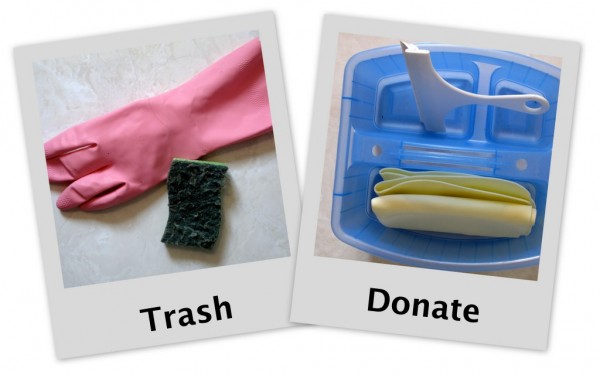Simple Saturday ~ Book Review – The Overspent American
 The Overspent American: Upscaling, Downshifting, and the New Consumer by Juliet B. Schor was published in 1998, but the information seems as relevant today as it did more than a decade ago. The book is geared toward middle and upper-income families, who seem to be caught up in a never-ending cycle of keeping up with the Joneses, no matter who the Joneses are.
The Overspent American: Upscaling, Downshifting, and the New Consumer by Juliet B. Schor was published in 1998, but the information seems as relevant today as it did more than a decade ago. The book is geared toward middle and upper-income families, who seem to be caught up in a never-ending cycle of keeping up with the Joneses, no matter who the Joneses are.
“The Joneses” are our first error, according to Dr. Schor. In the past, our Joneses (or reference group) would be our neighbors, who all lived in houses about like ours, drove cars similar to ours, and likely had two adults and only one income. However, Dr. Schor asserts that today, our reference group is no longer our neighbors, many of whom we do not even know. For many people, the new reference groups are our colleagues and coworkers, who may hold financially very dissimilar jobs to our own, and our media “friends” that is, the fictional people we see on TV and relate to. It’s not uncommon for someone making $50,000 to compare their financial prowess to someone making well over half a million.
Dr. Schor also discusses the brands and types of items we buy as a way that we identify ourselves and show our “place” in the complex world. In my peer group, nearly all my friends have iPhones (“regular” cell phones are no longer good enough for us) despite the fact that they cost a minimum of $70 per phone per month, in addition to the purchase price. Everyone has a laptop, including the kids, many of whom have their own iPhones, as well. (Often the model that their parents have already upgraded from.) Plenty of our friends go on overseas vacations regularly. Frankly, it’s a lot to think about keeping up with. I’ve had several conversations with my daughters reminding them that because they attend a private school, they are automatically surrounded by people with more money than is typical, and that a trip to Africa or Denmark is not something that most families take on an annual basis. (In fact, I dismissed one expensive private school, which really was out of my financial league, in part because a European school trip is mandatory for all high school students. I didn’t go to Europe until I was 33, and I’ve only been a two overseas trips total. I don’t want my child going to school where it’s thought that such an experience is a must for teens.)
Finally, Dr. Schor talks about “The Downshifter Next Door.” This chapter focuses on telling the stories of various individuals who have moved away fromconstant pressures to spend – from people are embracing voluntary simplicity to people who have made commitments to stop buying so many material goods and services. I think this is the group that most 365 Less Things readers are trying to become a member of.
The last chapter contains nine points to help turn this financial, emotional, and environmental quagmire around. They are:
- Controlling Desire – Stay away from places where you’ll spend.
- Creating a New Consumer Symbolism: Making Exclusivity Uncool
- Controlling Ourselves: Voluntary Restraints on Competitive Consumption
- Learning to Share: Both a Borrower and a Lender Be – Love this one and definitely practice it.
- Deconstruct the Commercial System: Becoming an Educated Consumer
- Avoid “Retail Therapyâ€: Spending is Addictive
- Decommercialize the Rituals – Christmas is a religious and family holiday. Don’t let the mall tell you how it should be.
- Making Time: Is Work and Spend Working? Cut back on your spending and maybe you can change how and where you work.
- The Need for a Coordinated Intervention
Lastly, I’ll leave you with this discouraging thought -Â which to me especially embodies the politics of the state that I live in – although remember that knowledge is power:
“The intensification of competitive spending has affected more than family finances. There is also a boomerang effect on the public purse and collective consumption. As the pressures on private spending have escalated, support for public goods, and for paying taxes, has eroded. Education, social services, public safety, recreation, and culture are being squeezed. The deterioration of public goods then adds even more pressure to spend privately. People respond to inadequate public services by enrolling their children in private schools, buying security systems, and spending their time at Discovery Zone rather than the local playgrounds. ” (p. 21)
By Cindy





 Hi folks, for Simple Saturday this week Cindy suggested that we give you an up date on how we are going with our pledges to
Hi folks, for Simple Saturday this week Cindy suggested that we give you an up date on how we are going with our pledges to 




